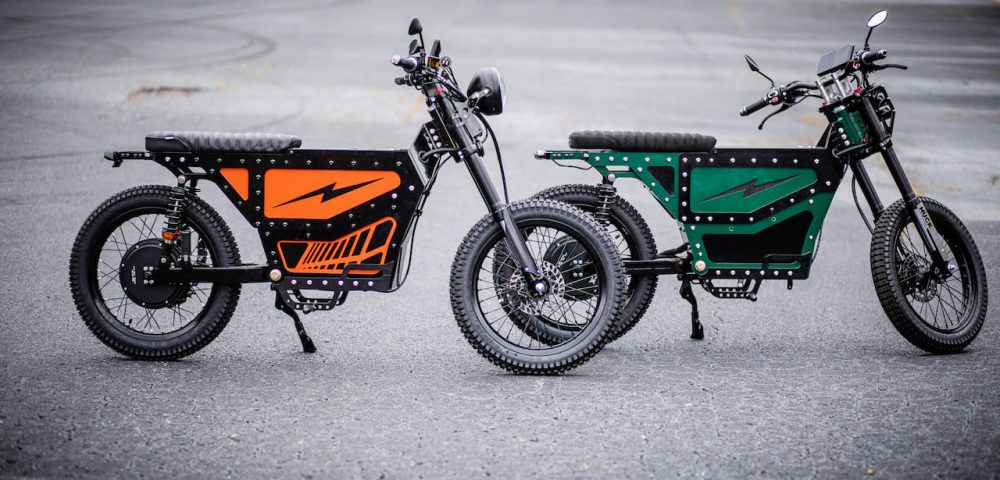Huck Cycles, a North Carolina electric moped maker, is finding that its off-road-optimized electric moped is actually proving quite popular for city riders as well.
It’s a surprising finding, considering the bike was originally designed for hunters, campers, and other outdoor enthusiasts that wanted a powerful but (relatively) lightweight electric two-wheeler.
The bike was inspired by the classic Honda Motra, itself a popular recreational mini-bike from the 1980s.
Far from a heavyweight electric adventure bike, the 145-pound (65 kg) Huck Overland is a smaller and more nimble ride. It comes with a 3 kW nominal and 6 kW peak-rated motor, and carries a 3 kWh battery rated for 40 miles (64 km) of range.
As founder and CEO Brett McCoy explained to Electrek, it’s not just hunters and fisherman that have taken to the Overland:
I’ve been shocked at how many people in larger cities like NYC, LA, and Miami have jumped on this model as a daily commuter. Apparently, the rugged Mad Max look is in for city riders too.

Like Huck Cycles’ other models, the Overland is street legal and comes with a VIN and manufacturer’s certificate of origin. That’s one of the advantages of handling manufacturing locally in North Carolina, starting from welding up the bare frames and handling every step of the assembly. As the manufacturer, Huck Cycles can ensure regulatory compliance.
Not everyone will need to register the bikes, as they have a speed-limited “moped mode” that lets them classify as a 49cc scooter or moped in many states. In other states, a motorcycle endorsement may be required, and the bikes may need to be registered as motorcycles. In that case, unlocking the higher-speed capability lets riders make the most out of the bikes after registering them as full motorcycles.
It’s a move we’ve seen other companies like ONYX explore as well, making it easy for riders to stay legal and operate their bikes responsibly within the confines of varying state laws.
With multiple speed modes, Huck’s bikes can hit speeds of “45+ mph,” with that plus sign likely doing some heavy lifting. Owners have reported exceeding that 45 mph figure with room to spare.
As urban rides, these approximately $5,800 machines offer a legal upgrade over 28 mph electric bicycles without entering full heavyweight electric motorcycle territory. They’re essentially a re-imagination of the 1970s heyday of 50cc mopeds.



As popular as the Overland has proven for city riders, the Huck Rebel remains the company’s best seller after debuting several years ago.
With a more traditional moped design, it uses a top-tank style frame with the contents of the “tank” being replaced by a 3 kWh battery. The more recognizable styling is likely better suited for riders that aren’t seeking out that Mad Max vibe offered by the Overland.
The $5,400 Rebel actually has footpegs instead of pedals, meaning many of my more pedantic readers will be blowing up my comments section soon to chastise me about misusing the “ped” part of the word “moped.”
As it happens, most states have moped laws that include what we sometimes call “nopeds,” or bikes like these that are moped-sized but feature pegs instead of pedals. And thus the word moped has grown and evolved over time, now largely used for a class of vehicles between heavyweight e-bikes and lightweight electric motorcycles, with or without pedals.

Whatever you call them, Huck’s electric two-wheelers certainly capture the classic moped charm while applying a 21st-century twist.
But for those that want something a bit bigger, the Huck Stinger pushes the brand into light electric motorcycle territory with a larger and more capable bike.
Expected to be priced in the $6,500 to $9,500 range depending on the loadout, the Huck Stinger will be arriving in Q4 of this year.


Read the full article here


